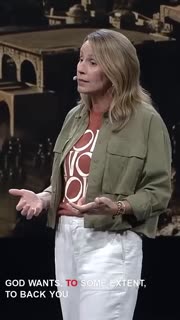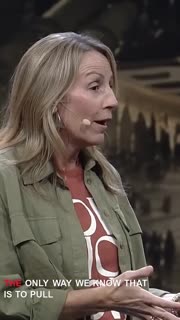Trusting God in Tough Decisions: Hezekiah's Example
Devotional
Sermon Summary
Bible Study Guide
Sermon Clips
### Quotes for outreach
1. "God uses hard calls. And this would be a chapter in his manual of how to grow you in your life of faith. It would, it happens all the time." [06:56] (8 seconds)
2. "God wants, to some extent, to back you into a corner so that you have to answer the question, what am I going to do? How do I navigate this? How do I engage God in this? Can I hear him? Can I follow him? And if I do, am I going to survive it? What's going to happen?" [12:59] (18 seconds)
3. "The only way around this in our tough calls is to become someone who deeply knows God, who intimately knows God. We're not clear precisely whether Hezekiah sees and gets this, because it's embedded in the speech, but I hope he did." [25:02] (18 seconds)
4. "God purposely put him in a position where he was going to be weak and hungry, and then guess who shows up? His enemy. His enemy shows up, and he starts offering him a picture of the future. All of this can be yours. I've got bread for you. If you'll just do it on my terms, if you'll just come my way, we can do this." [36:14] (22 seconds)
5. "And these stories end with God doing things on his way, on his timing, with his resources, and his power, and his might, and his counsel. I'll add mine. 25 years into a marriage that most people said was over, God looks pretty trustworthy. 19 years after walking away from the career that I thought I was building, God looks pretty trustworthy." [37:45] (23 seconds)
### Quotes for members
1. "When you're facing a tough call, you need to evaluate. We see them all in this story and also how Hezekiah engages God as we get each of these three pieces of information. So make your pro-con list, but I want you to do these three things as well. And the first one is to see patterns of the past." [14:27] (21 seconds)
2. "Despite the fact that he's backed into a corner, he really doesn't have any other reason to suspect that God isn't going to show up for him. He's got patterns to their relationship. He knows who he's been. He knows who God has been. He certainly knows who Assyria has been. He has plenty of track record to draw on here." [15:59] (22 seconds)
3. "The only way we know that is to pull them out, write them on a piece of paper, or say them out loud, and check it against the Word of God. Is that what God says about me? Is that what God thinks about my past? Is that what God's plans for my future say? Or is this fear? Is that what God's plans for my future say?" [25:02] (16 seconds)
4. "Hezekiah's faith drives him to God. Here's what it says. It says, when Hezekiah heard this, he tore his clothes, he put on sackcloth, and he went into the temple of the Lord. Running to the temple is like running straight into the presence of God. It would be like you running into your house, hitting your knees, and going, God, really? I'm here. I need you." [29:46] (23 seconds)
5. "And the question under every question, under every tough call, is who do you trust? On what are you basing your confidence? And God keeps putting us in these tough calls, hoping we're going to risk it on him, hoping you're going to go all in, hoping that this time, this time might be the time that you seek him, that you hit your face, and that you go all in on him, on trusting him." [34:43] (28 seconds)
Ask a question about this sermon
1. "God uses hard calls. And this would be a chapter in his manual of how to grow you in your life of faith. It would, it happens all the time." [06:56] (8 seconds)
2. "God wants, to some extent, to back you into a corner so that you have to answer the question, what am I going to do? How do I navigate this? How do I engage God in this? Can I hear him? Can I follow him? And if I do, am I going to survive it? What's going to happen?" [12:59] (18 seconds)
3. "The only way around this in our tough calls is to become someone who deeply knows God, who intimately knows God. We're not clear precisely whether Hezekiah sees and gets this, because it's embedded in the speech, but I hope he did." [25:02] (18 seconds)
4. "God purposely put him in a position where he was going to be weak and hungry, and then guess who shows up? His enemy. His enemy shows up, and he starts offering him a picture of the future. All of this can be yours. I've got bread for you. If you'll just do it on my terms, if you'll just come my way, we can do this." [36:14] (22 seconds)
5. "And these stories end with God doing things on his way, on his timing, with his resources, and his power, and his might, and his counsel. I'll add mine. 25 years into a marriage that most people said was over, God looks pretty trustworthy. 19 years after walking away from the career that I thought I was building, God looks pretty trustworthy." [37:45] (23 seconds)
### Quotes for members
1. "When you're facing a tough call, you need to evaluate. We see them all in this story and also how Hezekiah engages God as we get each of these three pieces of information. So make your pro-con list, but I want you to do these three things as well. And the first one is to see patterns of the past." [14:27] (21 seconds)
2. "Despite the fact that he's backed into a corner, he really doesn't have any other reason to suspect that God isn't going to show up for him. He's got patterns to their relationship. He knows who he's been. He knows who God has been. He certainly knows who Assyria has been. He has plenty of track record to draw on here." [15:59] (22 seconds)
3. "The only way we know that is to pull them out, write them on a piece of paper, or say them out loud, and check it against the Word of God. Is that what God says about me? Is that what God thinks about my past? Is that what God's plans for my future say? Or is this fear? Is that what God's plans for my future say?" [25:02] (16 seconds)
4. "Hezekiah's faith drives him to God. Here's what it says. It says, when Hezekiah heard this, he tore his clothes, he put on sackcloth, and he went into the temple of the Lord. Running to the temple is like running straight into the presence of God. It would be like you running into your house, hitting your knees, and going, God, really? I'm here. I need you." [29:46] (23 seconds)
5. "And the question under every question, under every tough call, is who do you trust? On what are you basing your confidence? And God keeps putting us in these tough calls, hoping we're going to risk it on him, hoping you're going to go all in, hoping that this time, this time might be the time that you seek him, that you hit your face, and that you go all in on him, on trusting him." [34:43] (28 seconds)










